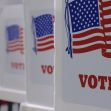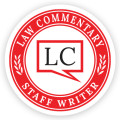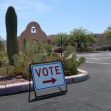The US Department of Justice (DOJ) filed a lawsuit against the Virginia Board of Elections (VBE) and the state Commissioner of Elections on Friday, accusing the state of violating federal voter registration laws by unlawfully purging voters from election lists. The lawsuit focuses on Virginia’s violation of the "quiet period" provision under the National Voter Registration Act of 1993 (NVRA), which prohibits the systematic removal of voters from rolls within 90 days of a federal election.
The DOJ contends that Virginia violated this provision by continuing a program that removed ineligible voters during the federally mandated quiet period. Under the NVRA, while states are permitted to remove ineligible voters ahead of the 90-day window, they must cease these efforts during the quiet period to avoid errors and voter disenfranchisement.
Assistant Attorney General Kristen Clarke of the DOJ’s Civil Rights Division emphasized that Congress included the quiet period to safeguard voters from last-minute purges that could wrongly disenfranchise eligible citizens. “By cancelling voter registrations within 90 days of Election Day, Virginia places qualified voters in jeopardy of being removed from the rolls and creates the risk of confusion for the electorate,” Clarke stated.
The DOJ's lawsuit follows an August 7 executive order by Virginia Governor Glenn Youngkin, directing the state's election board to cross-check voter information against Department of Motor Vehicles (DMV) records to update voter rolls. This process resulted in many voters being flagged and subsequently sent notices requiring them to confirm their eligibility within 14 days. If they failed to respond, they were removed from the voter rolls.
Governor Youngkin defended the effort, asserting that it was necessary to ensure election integrity by removing ineligible voters. “This isn’t a Democrat or Republican issue, it’s an American and Virginian issue,” Youngkin said in a press release.
In response, the DOJ seeks to restore improperly removed voters to the rolls, implement measures to prevent further quiet period violations, and require Virginia to educate voters on their restored rights. The DOJ also demands improved training for local officials and poll workers to avoid future breaches of the NVRA.
The lawsuit highlights the tension between efforts to secure elections and the potential for disenfranchising voters. The DOJ reiterated its commitment to protecting the right to vote, calling it the "cornerstone of our democracy."
This case follows a series of election-related legal battles nationwide as states implement stricter voter registration measures, often sparking disputes over voter suppression versus election integrity.






